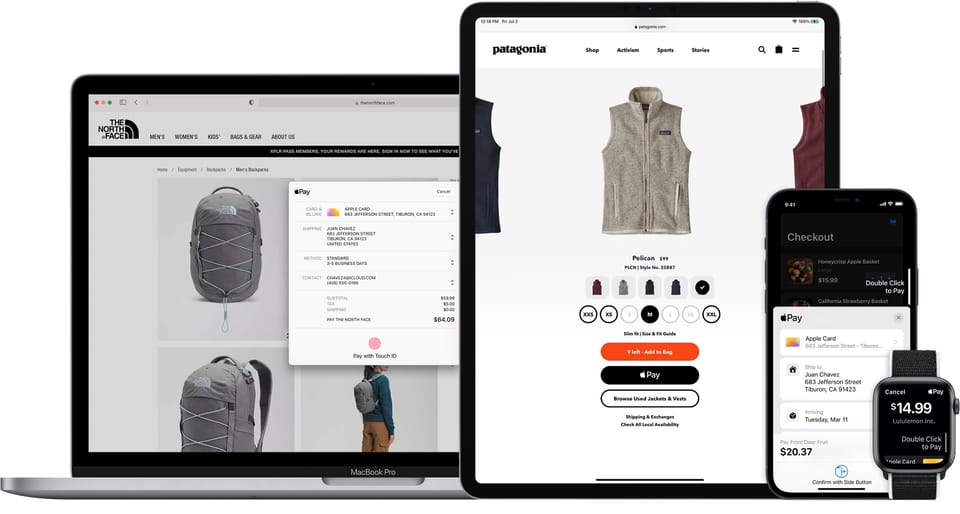Merchant Surcharging: Considerations for Businesses
Time for a deep dive on merchant surcharging. While surcharging occurs in both card present and card not present environments, it's often misunderstood and I've tried to bring both sides to the table ..... bon appétit.

In this post, I will look at surcharging in the merchant acquiring space. This is the practice of adding an additional fee to a customer's purchase when they pay with a credit or debit card. We will cover the following topics:
- What is surcharging?
- How does it work?
- The different types of merchant acquiring surcharging
- The regulations governing merchant acquiring surcharging in Australia
- The factors that influence a merchant's decision to surcharge
What is surcharging?
Surcharging is the practice of adding an additional fee to a customer's purchase when they pay with a credit or debit card. This fee is intended to cover the merchant's costs of accepting card payments, which can include things like interchange fees, merchant service fees, and processing fees.
Before we dive in, let’s understand how much these fees are in Australia for both card present (in-store) and card not present (online) channels.
Merchants generally sit in the 1 - 3% of the sale for merchant acquiring fees. Larger merchants may sit below this and smaller merchants slightly above. Alternative payment methods such as PayPal which seem double these numbers or Buy Now Pay Later payments sit in the 2 - 6% and tend to average around 4.3% across merchants and industries.
How does it work?
When a customer pays with a credit or debit card, the merchant pays a fee to their acquiring bank, often referred to as a merchant service fee. The bulk of this fee goes to international card schemes such as Visa, Mastercard and American Express. This portion of the fee is known as the interchange fee. The interchange fee is a percentage of the transaction amount, and it varies depending on the type of card and the merchant's acquirer. Card types can range from a standard dual network debit/scheme card to more premium or reward type of cards which acrues higher interchange fees. The merchant also pays a service fee to their acquirer, which is most often a much smaller percentage or sometimes a flat fee per transaction.
The merchant can choose to pass on these fees to the customer by adding a surcharge to the bill. The amount of the surcharge is typically between 1% and 3% of the transaction amount.
The different types of merchant acquiring surcharging
There are three main types of surcharging:
- Full cost of service surcharging: This is the most common type of merchant surcharging. The merchant charges the customer the full amount of their costs of accepting card payments, including the interchange fee, merchant service fee, and any other processing fees.
- Partial surcharging: This type of merchant surcharging involves charging the customer a portion of the merchant's costs of accepting card payments. The merchant may choose to only charge the interchange fee, or they may also charge a portion of the merchant service fee.
- Premium surcharging: This type of merchant acquiring surcharging involves charging the customer a higher fee for using certain types of cards, such as premium cards or cards with rewards programs.
The regulations governing merchant surcharging in Australia
In Australia, merchants are allowed to surcharge for card payments, but the amount of the surcharge is limited to the merchant's average cost of acceptance for that type of card. The average cost of acceptance is calculated over a 12-month period.
The Australian Competition and Consumer Commission (ACCC) enforces the regulations governing merchant surcharging. If a merchant charges an excessive surcharge, the ACCC may take action against them.
The factors that influence a merchant's decision to surcharge
A number of factors can influence a merchant's decision to surcharge, including:
- The merchant's costs of accepting card payments
- The merchant's competition
- The merchant's customer base
- The merchant's industry
- The merchant's location
Cost of Handling Cash
Surcharging often is believed to be more expensive than handling cash. This is generally incorrect when you look at direct and indirect costs. Merchants incur costs for cash handling, such as the cost of counting and storing cash, the cost to secure or move, and the cost of counterfeit detection, in addition to human error. Merchants generally prefer to manage less cash due to these issues. One thing for certain is that there is a cost for cash handling and it would be very possible for this cost to be equal or greater than 1 - 3%.
Some Surcharging Considerations
- It can be seen as unfair to customers, who are forced to pay more for their purchases simply because they choose to use a credit or debit card.
- It can discourage the use of credit and debit cards, which can make it more difficult for people to make purchases.
- It can lead to higher prices for goods and services, as merchants pass on the cost of the surcharge to their customers.
- It can give businesses an unfair advantage over their competitors, who may not be able to afford to surcharge.
From a Merchants Perspective
- It allows merchants to recoup the costs of accepting card payments, which can be significant.
- It gives merchants more control over their pricing, as they can set the surcharge amount based on their own costs.
- It can help to level the playing field between businesses, as all businesses would be able to surcharge if they chose to do so.
Free EFTPOS
It must be my profession as my newsfeed is littered with free eftpos rental and free merchant acquiring. The only way to have free acquiring to cover a $20-30 monthly rental fee on a terminal and pay the international card schemes is to surcharge. Potentially, you can fully or partially cover merchant acquiring costs through surcharging. The question is whether your customers are willing to bear this cost. Personally, I’m fine at my local milk bar to zap me 20c, but might draw the line or shop elsewhere with a national retailer or when there are market options.
Summary
Merchant surcharging is a complex and controversial topic. There are many factors to consider when deciding whether or not to surcharge. If you are a merchant who is considering surcharging, it is important to carefully weigh the pros and cons and to make sure that you are in compliance with the regulations. Customers don’t like surcharging and would rather know the total cost of a purchase is inclusive of GST and any costs of merchant surcharging.
About Mike Fowler
Mike is an eCommerce veteran, senior leader & growth strategist for some of Australia's best known retailers. Currently, a manager of payment solutions at National Australia Bank and formerly at Afterpay as Director of Merchant Services APAC. With a long career in eCommerce retail as General Manager and founder of the growth team at Mosaic Brands (Noni B Group) developing and launching 9 iconic multi-category online marketplaces, including: Noni B, Rockmans, Millers, and Rivers. Member of the Australia Post Customer Advisory Group with more than 15 years experience in helping retailers leverage eCommerce, CX, payments, & logistics opportunities to maximise growth.



